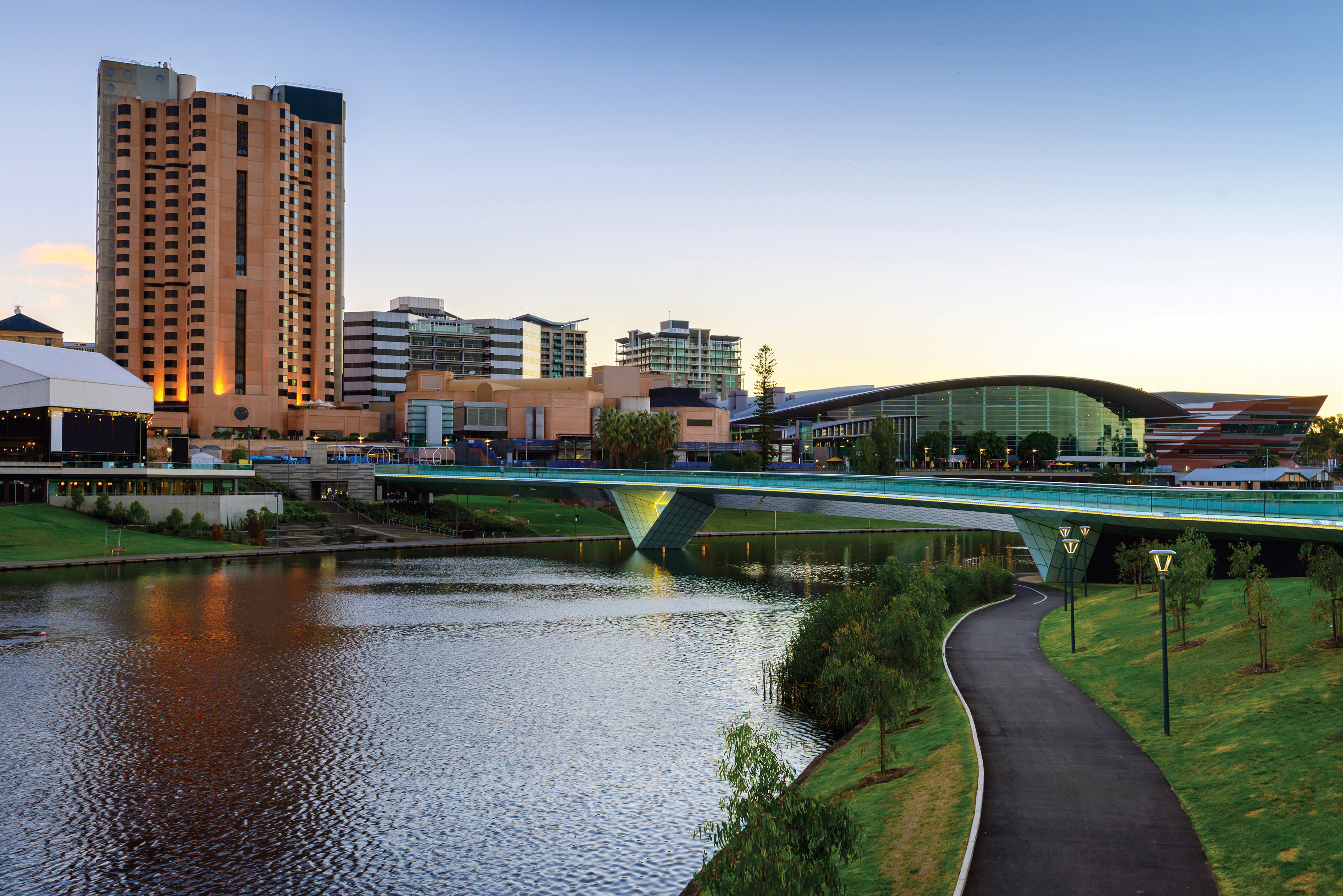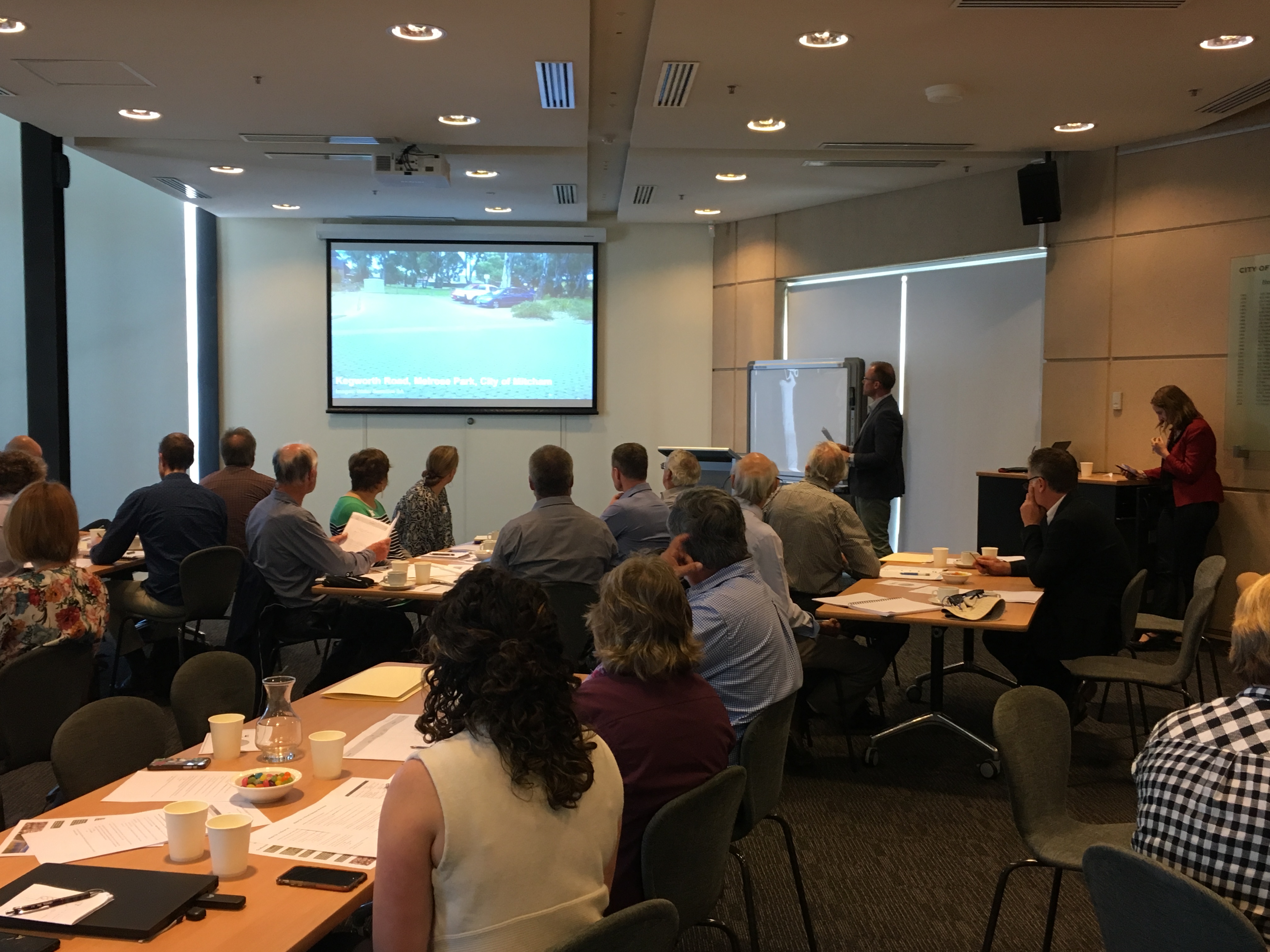Adelaide progresses its transition to a water sensitive city

Adelaide is on track for transitioning to a water sensitive city, with industry stakeholders in South Australia meeting to discuss the strategic direction for the city’s urban water planning.
The ‘Water for a Vibrant Adelaide’ workshop, in November last year, brought together stakeholders from across urban water management, planning, development, open space management, and other areas to identify the challenges and opportunities for enhancing water services in South Australia. The workshop built on the Vision and transition strategy for a water sensitive Adelaide, developed by the CRCWSC as part of IRP1 (Water sensitive city vision and transition strategies).
The stakeholders focused their thinking around five key outcomes for a water sensitive Adelaide:
1. Liveable neighbourhoods that are created through smart water sensitive design and water use
2. Engaged communities that are active water managers at the property and city scale
3. Flood-aware and resilient communities with high flood awareness and resilience to minimise the scale of adverse consequences
4. Secure, diverse and affordable water supplies for business and the wider community
5. Leading in innovative water products and services for efficient and effective resource use and for business growth and export purposes.
Forty participants from a range of public and private sector organisations attended the workshop, which featured a series of presentations outlining broad challenges and opportunities for achieving the five key outcomes.
SA’s reform of the natural resources management sector, plus the need for continued water reform identified at the national level through the Productivity Commission report on National Water Reform, have prompted renewed focus on water planning and management within the state.

With a drying and warming climate, population change and the recognition that green cities improve our health and wellbeing, stakeholders recognise this as the right time for South Australians to re-imagine the way they manage and use water. Based on the workshop, there is strong interest in an urban water reform agenda in Adelaide, with agreement that challenges and opportunities align with the five key outcomes proposed during the workshop.
Steven Gatti, Manager, Urban Water, Economics and Water Security at the SA Department for Environment and Water said the CRCWSC’s application of its Water Sensitive Cities Transition Planning Process, which includes the Water Sensitive Cities Index and the Transition Dynamics Framework, has helped stakeholders define and understand their starting point and transition process for a more water sensitive Adelaide.
‘The CRC for Water Sensitive Cities has been making valuable contributions to help set Adelaide’s future water directions, including by way of benchmarking how far Adelaide has come in its transition to a water sensitive city, and in helping identify current key gaps and potential future transition strategies.
‘Our involvement with the CRCWSC continues to be important as we develop integrated urban water strategies to enhance Adelaide’s liveability and productivity, strengthen our resilience to floods, droughts, and heatwaves, and support healthy, thriving waterways and coasts,’ Steven said.
As the next step, early in 2019, stakeholders involved in the process will be helping to refine integrated water strategies for Adelaide and exploring case studies, to progress the five outcomes.
For more information about this initiative, contact Martin Allen, Department for Environment and Water, at martin.allen@sa.gov.au or 08 8463 6932. For details of the CRCWSC’s involvement in Adelaide’s transition to a water sensitive city, contact our SA regional manager, Mellissa Bradley at mellissa.bradley@crcwsc.com.au.
STOP PRESS: Find out the secret to a cooler, greener Adelaide
If you’re in Adelaide, find out more about how to we can transform the city’s streets and neighbourhoods. Water Sensitive SA is running a forum and expo at the Adelaide Convention Centre on Wednesday 20 March.
And stay tuned for more details about speakers and displays in our next edition of waterSENSE.